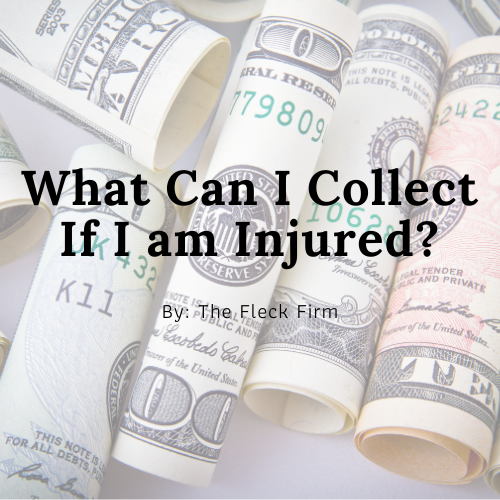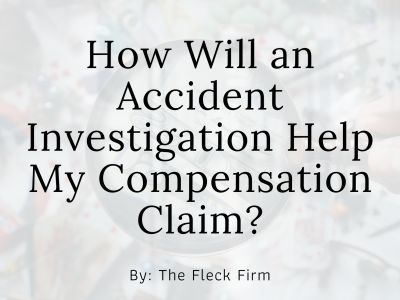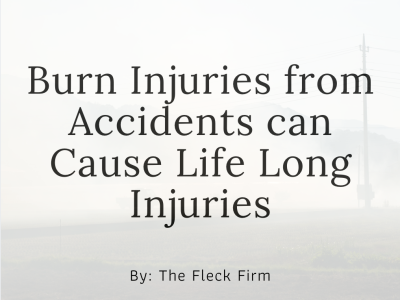If you weren’t injured in an accident and suffered no financial harm, you couldn’t file a personal injury case even if you wanted to. These cases are based on the legal theory of negligence. One of the essential elements of these cases is harm measured in dollars or damages. Without claiming injury or being able to prove it, your lawsuit will be dismissed.
What counts as damages in a negligence case? The idea behind damages (except punitive damages) is to try, through money, to compensate you for the harm done and to try to make you whole. If you endured pain because of another’s mistake, you should be paid for it. If you have past medical bills which are also expected to continue, the defendant (the responsible party you’re suing), not you, should pay for them.
Damages cover issues that are hard to put your hands on, like the degree of pain, and other things that are easy to add up, like lost pay or the cost to repair your car. I will work with you so you’ll get the most compensation for everything you’re owed. It covers a lot of ground.
If you read about a personal injury case settlement or jury verdict and saw a dollar figure in the hundreds of thousands or millions of dollars, it’s only natural to imagine having that kind of money. But you don’t want the injuries that kind of money compensates for. These lives are ruined. These people may be paralyzed, suffered severe brain damage, and experience chronic pain every day. As much as I want you to get this kind of money, unless you suffer that kind of harm, it’s not very likely.
These are some of the damages available in a Kentucky personal injury case…
What is Pain and Suffering?
You could be compensated for the physical, mental, and emotional pain caused by the accident, subsequent treatment, and rehabilitation.
Pain and suffering are hard to quantify, so we look at their impact on your life. From the accident through your active medical treatment, insurance companies will look through your medical records to look for evidence of pain and suffering. It will be measured by:
- The terror and fright felt during and after the accident
- The physical pain you experience due to the accident, treatment, and rehabilitation
- The type and amount of pain medication you take
- Physical limitations caused by pain, including your ability to perform daily tasks, normally interact with loved ones and work
- The pain and suffering are shown in physical ways. You can’t sleep well, you lose interest in sex, you lose appetite or compulsively eat, or you lack energy
- The negative impact on your relationships
- Because of the accident and treatment, you may suffer from post-traumatic stress disorder (PTSD)
- The psychological or emotional pain you feel. This includes anxiety, fear, and worry you may have about yourself and your family. The mental distress, anger, and depression you feel because of diminished quality of life. You may need help from a mental health professional to cope and take medication to improve your emotions
- The humiliation and embarrassment you may feel because of visible scarring, going through treatment and rehabilitation, as well as the fact you can’t support yourself and your family as you did in the past
Other attorneys take contingent fees of 33% to 50% of your settlement.
We want you to keep more of your money.
Our contingent fee is only 30% on cases settled prior to filing suit.
How Do You Prove Pain and Suffering?
You may suffer through all these issues, but if they can’t be proven and aren’t documented, you won’t get any compensation. This makes medical records critical to your case. You must be open and honest with whoever is treating you, whether for physical or emotional pain.
As much as you want to have a happy, upbeat discussion with the person, those words may end up in your records as you’re not in pain and doing well. When you discuss your situation, understand that indirectly you’re also talking to the insurance company because they will read your records. Those who treat you may also be called to testify about your pain and suffering during your case, so they need to understand what you’re going through
Another way to establish your pain and suffering is through a medical expert. This person will examine you, go through your medical chart, and develop an expert opinion on what caused your injury, your diagnosis, and the level and type of pain you’ve suffered and are expected to suffer in the future. The insurance company may also hire their own expert who will do the same.
You could also keep a journal. It can be in writing or recorded audio or video. This can be a diary of what you’re doing and how you’re feeling physically and psychologically. Giving specific examples of things you can’t do, or have difficulty doing, would be very helpful. Maybe you can’t play with your dog as you did in the past, you can’t pick up your child or do the dishes, you missed a birthday party or couldn’t get out of bed. We may also hire a professional videographer to create a “day in the life” video to show how you live and how you feel.
What Are Out of Pocket Losses?
These are all your financial losses that can be documented. They include all your bills and everything you paid for, and what you’re expected to pay for in the future, concerning your medical care, psychological care, and rehabilitation. This includes medications, crutches, ambulance costs, and mileage to and from appointments.
This also covers lost back wages and benefits and future expected losses. If your accident causes a disability that results in you making less money, you can claim the difference between what you expected to earn if there was no accident and what you’re expected to actually earn afterward.
These damages also need to be tracked and documented. You must keep copies and of bills and receipts in an organized way. Don’t throw everything in a box and forget about it.
What Are Punitive Damages?
If the other party acted intentionally or so extremely negligently they showed no regard for your life or the lives of others, you may receive punitive damages. Because this standard is so high, these damages are rarely awarded, but they might depending on the facts. The goal of punitive damages is to punish the party for such actions and to discourage it, and others, from taking the same actions in the future.
You should be awarded punitive damages, according to state statute, if you prove, by clear and convincing evidence, that the other party acted toward you with “oppression…or malice.”
- “Oppression”: Conduct intended to subject you to cruel and unjust hardship
- “Malice”: Conduct intended to cause injury to you or carried out with a flagrant indifference to your rights with the knowledge it will cause death or bodily harm
Take the Next Step. Call Tyler Fleck
There are many possible issues about what may or may not be damages in your case and how they could be proved. Get help from a personal injury attorney you can trust to guide you through this process so you can get the best compensation possible.
Contact The Fleck Firm today for a free consultation by calling us at (270) 446-7000. We’ll talk about what happened, your injuries, the law, and your best options to proceed. Insurance companies have lawyers. You should have one too.








